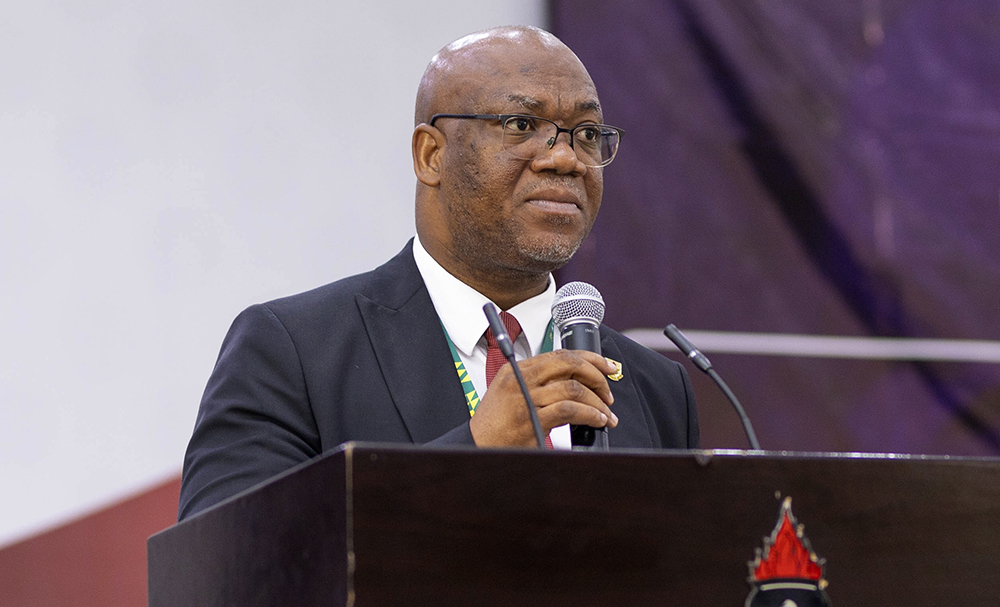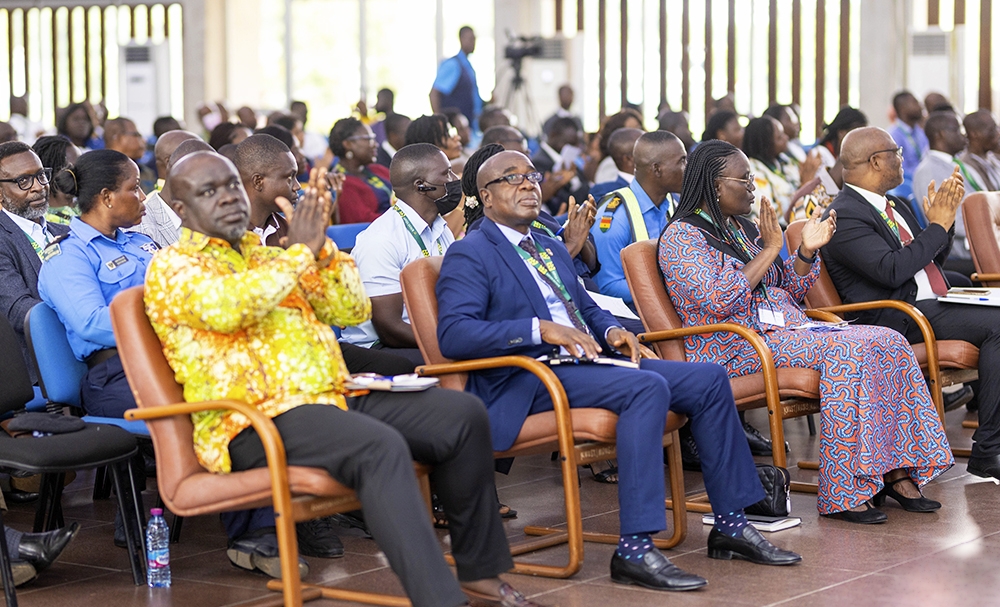The Quality Assurance and Planning Office (QAPO) under the Office of the Vice-Chancellor of the Kwame Nkrumah University of Science and Technology (KNUST), Kumasi has held a day’s consultative meeting with “Policies Stakeholders” of the University.
Opening the meeting, the Vice-Chancellor, Professor (Mrs.) Rita Akosua Dickson stated that KNUST as a public institution was established by the government by an Act of Parliament and is guided by the Acts and Statutes of the University and operates on policies and procedures.
She said all institutions and organisations need policies and procedures to guide and regulate what they do. It is, therefore, not surprising that most international funders and collaborators require certain policies before entering into joint projects with the University.

According to Professor Dickson, the University has all the relevant policies in existence. With forty existing policies and still counting, the challenge is whether staff and students know these policies. This challenge has necessitated the grouping of the policies into seven key areas and the appointment of seven policy champions with team members to ensure its implementation.
She said the meeting would offer all stakeholders the opportunity to evaluate previous strategies with regard to the dissemination of the policies and brainstorm on new approaches for maximum benefit. She also noted that KNUST recognises students as major stakeholders and is putting interventions in place to ensure they have a firm grasp of the policies and the Students Guide.

The Dean of the Quality Assurance and Planning Office, Professor Jerry John Kponyo, said his outfit has the mandate to plan and develop policies to guide the affairs of the University. This role includes ensuring that the policies are implemented and are at the fingertips of members of the University Community.
Professor Kponyo continued that in view of these, the University management has appointed Policy Champions from the various Colleges who serve as resource persons and evaluate the implementation processes of the various policies. The Policy Champions facilitate policy Awareness Sessions organised for members of faculty and other staff across the University.
The Dean of QAPO added that to facilitate the effective implementation and compliance with the University policies, it is expected that, among other things, all Provosts, Directors, Deans, Finance Officers, Heads Of Departments and Units, Student Leaders, and all Registrars within the University, who are major stakeholders of the University’s policies, are well informed of the overall essence of the policies, and are actively playing their roles in the implementation and policy education activities.
He indicated that it is on this basis that the meeting for consultation for major stakeholders of the University to dialogue on the best approaches to creating an awareness of the various policies and devising mechanisms for working with them in the day-to-day running of the University.

In her presentation on “Procedure for Policy Development, Implementation, and Review, the Acting Head of Institutional Planning, Dr. Nadia N. D. Tagoe, said KNUST as a state organisation is founded and operating according to the laws of Ghana, the KNUST’s corporate strategic Plan as well as the University’s approved policies. Dr. Tagoe continued that the University is still undergoing a process to make its policy implementation more efficient.
According to Dr. Tagore, the stakeholders meeting, the appointment of Policy Champions, the development of a standardised template for policy drafting, adopting a policy framework for policy, policy actions monitoring, evaluation, and review, will all help policies to serve their intended purpose.
She outlined the policy sessions for this year and encouraged the active participation of all stakeholders and their sections to help the Policy Champions meet the overall objectives.

Professor (Mrs.) Ibok N. Oduro, on behalf of all the “Policy Champions, in her submission on Policy Sensitisation and Implementation at KNUST”, said policies are essential for organisations to operate in an orderly way for growth. For Policies to be effective and to ensure compliance, they require the collaborative efforts of all and a strategy.
Professor (Mrs.) Oduro expressed her dissatisfaction that despite the numerous policies, there exists apathy and a low level of ownership of policies by stakeholders. There is also low participation in policy sessions at the Colleges. She, therefore, advocated for the publication of policy briefs in the Tek Briefs, websites, and other platforms to create more awareness. She further called for a policy week celebration to increase interest and awareness within the University community.
Ending her presentation, the Policy Champion suggested the inclusion of an examination on the policies for newly recruited staff and as a promotion requirement.
Source: University Relations Office (URO)

